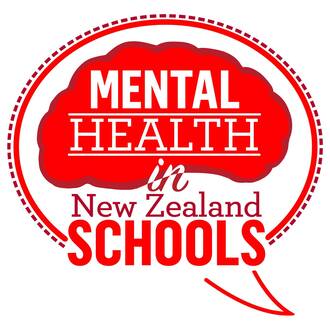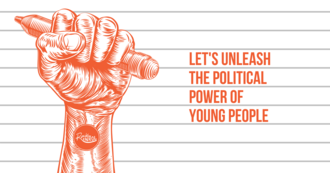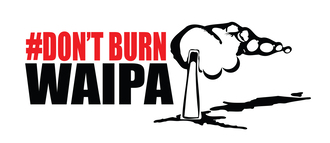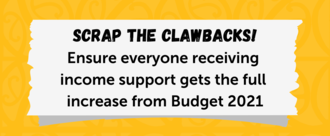Search result for "New Plymouth ".
-
Open Letter: Welfare Relationship Policies Must ChangeDear Prime Minister, No matter who we are or where we live, we all know that relationships and connections with other people are what help us through the hard times. That strong communities are formed when we can rely on each other. When we lose a job, become sick, or our relationship breaks down, being able to ask the people who care about us for support, in the ways that meet each of our needs, is key to getting through those hard times. Right now, the Government is isolating people and punishing them for supporting each other during hard times, instead of encouraging people to build strong connections and support networks. People in politics have written the Social Security Act so a person at Work and Income can decide to stop or reduce a person’s income support, if they believe they have entered into a relationship “in the nature of marriage”. What this means in practice, is that people who start dating someone for up to six weeks, or have someone to stay up to three nights a week, or even people who have long-term flatmates, are having all they financial support cut. Some people at Work and Income have been insisting that friends, casual acquaintances, and new romantic partners should become financially responsible for that person, and often their children. There is no clear criteria used by people at Work and Income to decide whether to cut someone’s financial support. This results in random and unjust practice which lacks common sense. For instance, to determine if someone is reliant on another person financially, people have been asked by Work and Income caseworkers, “If they won the lotto do you think they would give you some of it?” This policy is eroding, not building, connections between people in our communities. It stops people developing new supportive relationships, that over the long term help people live a normal life. It makes people fearful of connecting with others in case their income is cut by people in Work and Income, and harms their mental wellbeing. Also, when people in government insist that a person becomes financially reliant on a new partner, it forces them, especially women, children and disabled people, into relationships that may be risky or abusive, without the financial independence to get out. It traps people in unhappy, dangerous and stressful living situations. The government should instead be seeking to support strong connections between people and build strong, resilient communities. The solution is for people in government to change how relationships are treated by Work and Income New Zealand so people get what they need to live a dignified life that does not trap them in poverty and make them fearful to build relationships. For instance, disabled people need to continue to get financial support to manage their health needs, regardless of their romantic status. And women raising children on their own need to have the financial independence to make decisions for the good of their children, whether they are in a relationship or not. The Government should be encouraging people to build strong connections because that's what builds great lives, great communities and flourishing countries. We are asking your Government to individualise benefit entitlements to ensure that everyone can retain their financial independence, no matter their relationship status.1,705 of 2,000 SignaturesCreated by Team ActionStation

-
Better Mental Health Education in All NZ SchoolsWe call for better guidelines and adequate training and funding for mental health education in the New Zealand high school curriculum covering these key areas: -Causes and symptoms of common mental health issues -How to support those experiencing mental distress -Available pathways for help -Positive wellbeing actions Students need to be exposed to this every year, and all the way up to year 13. UPDATE Lucy delivered this petition in 2017 and made an oral submission to the Health Select Committee (2019). 10,000 sign petition to push mental health ed for students: https://www.rnz.co.nz/national/programmes/first-up/audio/2018706698/10-000-sign-petition-to-push-mental-health-ed-for-students. Select Committee report: https://www.parliament.nz/resource/en-NZ/SCR_99943/83c94b1ab1b4476a5fb8ade064c37a11e0255d9c10,610 of 15,000 SignaturesCreated by Lucy McSweeney
-
Introduce robust citizenship education in schools and lower the voting age to 16To help ensure we have a flourishing democracy where all young people participate, we need to introduce robust citizenship education in all secondary schools and lower the voting age to 16.477 of 500 SignaturesCreated by Team RockEnrol

-
BUY BACK PUKETITI (Ōpua Headland)This iconic public land should never have been transferred from Far North District Council to Far North Holdings Ltd and sold without involving mana whenua and local residents. It was scandalous to sell off the land and even worse, to sell it off secretly. We ask FNDC and FNHL to rectify their mistake and refund the offshore buyer.580 of 600 SignaturesCreated by Paula Beck
-
Rise Above The Cloud: Change Vape Packaging to Display Health WarningsVaping is an increasing issue in our youth that is causing long term addictions and health problems. According to the Ministry of Health, “In 2021/22, 1 in 12 people aged 15 or older (8.3%) were daily vapers (346,000 people).”(1) If you are a parent, there is a real chance that your teen is addicted to vaping or vapes on a regular basis. The vape culture amongst youth is fueled by the appealing look, colours, and flavours of vapes. In addition to that, vaping has become an entrance to nicotine smoking and addiction, capturing youth who had never previously smoked. As high school students, we have seen the consequences of vaping first-hand in modern society. We have grown up without vapes, and now they seem to be a big trend among youth all over New Zealand. We want to protect those who are vulnerable and could be seriously affected by vaping, which is why we have decided to do a student-led petition. We are calling on Health Minister Shane Reti to take action to change the strong vape culture here in New Zealand. Specifically, changing the packaging of vapes to something similar to current day cigarette packaging. We suggest the following adjustments: Standardising Packaging Requiring all vape packaging to follow a basic formatting in order to appear less appealing and attractive. This would mean removing the use of bright colours, removing distinctive logos and icons, using plain fonts, and generally normalising packaging so that it has no promotional content. Graphic Images of Health Impact All packaging should include images illustrating the potential health risks associated with vaping. Risks could include: inhaling airborne metals from vape coils, hundreds of potentially toxic chemicals, drinking/injecting vape fluid can kill you. This would likely be more eye-catching and leave a lasting impression on buyers, and would show current vapers the potential consequences of their actions. Obvious Health Warnings Packaging should include clear health warnings, such as the following: • ‘There is conclusive evidence that in addition to nicotine, most e-cigarette products contain and emit numerous potentially toxic substances.’(2) • ‘There is conclusive evidence that intentionally or unintentionally drinking or injecting e-liquids can be fatal.’(2) • ‘There is substantial evidence that e-cigarette aerosol contains metals. The origin of the metals could be the metallic coil used to heat the e-liquid, other parts of the e-cigarette device, or e-liquids. Product characteristics and use patterns may contribute to differences in the actual metals and metal concentrations measured in e-cigarette aerosol.’(2)153 of 200 SignaturesCreated by Bindi Rolton

-
Call for Independent Inquiry into Institutional Racism and Racial Profiling by the Waikato PoliceEstablish an immediate independent inquiry into the Institutional Racism and Racial Profiling by the Waikato Police.278 of 300 SignaturesCreated by Lou Hutchinson
-
Climate Change Chaos: Don't burn Waipā - NO TO TOXIC WASTE BURNING IN WAIPĀWe urge Waikato Regional Council and Waipā District Council to say ‘NO’ to a waste-to-energy incinerator in Te Awamutu. We call on the Waikato Regional Council to decline the resource consent application by Global Contracting Solutions Limited to: 1. discharge toxins into the air; 2. fill in the floodplain to build the waste-to-energy-incinerator; 3. discharge toxic stormwater to the Mangapiko stream; And, that the Waipā District Council decline the resource consent application for a change in land use by Global Contracting Solutions Limited (GCS) for the purposes of building a waste-to-energy incinerator at 401 Racecourse Road, Te Awamutu, Aotearoa New Zealand. Failing that, both Waikato Regional Council and Waipā District Council choose to publicly notify the resource consent applications so that Te Awamutu and the wider community are consulted and have the opportunity to find out more information and provide feedback. In addition, we request that: 1. Waikato Regional Council require that the consenting process extends beyond emissions to air to also include discharge to land and water - because we know that toxicants will be produced in the processes being described by GCS and potentially released into our waterways and soils. 2. Waikato Regional Council identifies the lack of alignment of the resource consent applications with: a. their Regional Plan policy 6.1.5.1, environmental education, Council states it will use environmental education to help the community understand the types of adverse effects on air quality which includes incinerators b. their Council’s Waste Strategic Action Plan 2020-2025, which goals include accelerate transitioning to a circular economy in the Waikato region and working together towards a zero-waste region. A waste-to-energy-incinerator is the direct opposite of promoting a circular economy. 3. Waipā District Council identify the lack of alignment with their Waste Management and Minimisation Plan 2017-2023 and Waipā Waste Strategy 2017-2035. 4. Waikato Regional Council and the Waipā District Council obtain a public health expert assessment of the proposed waste-to-energy incinerator before it is given consent to proceed.2,844 of 3,000 SignaturesCreated by Dontburn Waipa
-
Help Dame Sue Bagshaw build her Youth HubWe call on the Christchurch City Council to approve the resource consent for the Youth Hub Trust facility. This will provide much needed education, healthcare, mental health support, training, recreation and employment services to 10 to 25-year-olds.866 of 1,000 SignaturesCreated by Gerrie Ligtenberg
-
Ensure everyone receiving income support gets the full increase from Budget 2021We are calling on the Minister for Social Development Carmel Sepuloni to ensure every recipient of income support receives the full $20 increase announced in Budget 2021.49 of 100 SignaturesCreated by Team ActionStation

-
Ban Misleading Labelling for Vegetarian and Vegan ProductsThe Vegan Society and the NZ Vegetarian Society are demanding additional legislation requiring factual and clear labelling on consumer products. The current ambiguity in product labelling creates significant consumer confusion and undermines trust. The lack of stringent regulations around the use of terms like "plant-based," "vegetarian," and "vegan" creates consumer confusion and dilutes the integrity of these labels. Clear, standardised, and enforceable labelling regulations are essential to protect consumers and support informed, ethical purchasing decisions. We propose the following: • Standardise "Plant-Based" Labelling: The term "plant-based" should be exclusively reserved for products that are 100% derived from plants. This term focuses solely on the ingredient source being 100% plant-derived. This clarity ensures that consumers are not misled by products containing animal-derived ingredients. • Ban Misleading Terms: Eliminate vague and misleading terms such as "less dairy". These terms lack clear definitions and can deceive consumers about the actual content and health implications of the products. • Clarify “Vegan” Labelling: When a product is labelled vegan, it should mean that no animal products or by-products were used at any stage of the manufacturing process. To ensure this, the following criteria must be met: • Products must be free from animal-derived ingredients. • Products must be GMO-free. • No animal testing must be carried out or commissioned in the production of the product. • Measures must be in place to prevent cross-contamination with animal products during production. • Clarify "Vegetarian" Labelling: The term "vegetarian" should be reserved for products that contain no meat, poultry, fish, or seafood. Additionally, any use of animal by-products (such as gelatine, rennet, or certain colourants) should be clearly indicated. To ensure this, the following criteria must be met: • Products must be free from ingredients resulting from animal slaughter. • Only free-range eggs must be used. • Products must be GMO-free. • No animal testing must be carried out or commissioned in the production of the product. • Measures must be in place to prevent cross-contamination with animal products during production.1,422 of 2,000 Signatures

.png)








